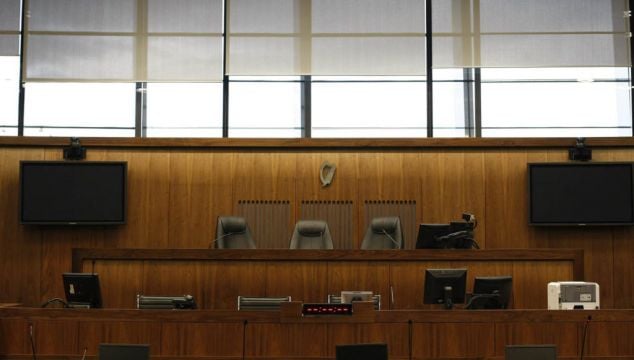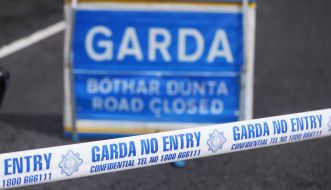In a landmark judgement, the Court of Appeal has ruled that a child before the courts for a criminal offence can be identified if they turn 18 during the course of proceedings or by the time their appeal comes on for hearing.
The court returned the judgement on Friday in the case of the youth who murdered "decent and upstanding" student Cameron Blair and who will be named in 28 days unless his legal team takes the case to the Supreme Court.
The youth, who was 17 when he pleaded guilty to Mr Blair's murder, is now 21.
His anonymity had been preserved by an interpretation of Section 93 of the Children Act, which held that the rules protecting the identity of child offenders still applied when that person appeared before the Court of Appeal having reached the age of 18.
However, the Court of Appeal ruled on Friday that section 93 "applies only to a child", which is defined as a person under the age of 18 years.
Delivering the judgment on behalf of the three-judge court, Ms Justice Isobel Kennedy said the language used in the Act is "clear and unambiguous" in that it provides for reporting restrictions in proceedings before any court concerning a child.
"A child is a person under the age of 18 years and so in giving the words their ordinary meaning, once a person is under the age of 18 years and where proceedings are before any court, reporting restrictions apply."
Ms Justice Kennedy added that no provision of the Act "provides for an extension of reporting restrictions and anonymity to those who age out before proceedings conclude".
"Reporting restrictions are expressly limited to those under the age of 18 years," she said.
Separation of powers
Ms Justice Kennedy said that to find that the legislation provides anonymity to those who have aged out would require the court to "rewrite and extend the plain meaning of the language used".
She added: "In our view, this would strain the language beyond measure. This is not the role of the courts and would fail to respect the separation of powers. We are of the opinion that the literal meaning is the correct one."
Ms Justice Kennedy considered the example of a child on trial who ages out during the proceedings.
She said: "The Act does not provide that a person in that position continues to benefit from the safeguards under the Act. In the same way, the Act does not provide for the safeguards to continue should a child offender age out in the period between conviction/sentence and appeal."
Following Friday's judgment, Mr Justice George Birmingham, president of the court, told the legal teams that he would put a stay on the lifting of reporting restrictions to allow an appeal to the Supreme Court.
He asked the lawyers representing the young man to indicate if they do not intend to appeal Friday's ruling.
Implications
The ruling will have implications for child defendants who are unable to get a hearing date or complete their trial and sentence before they turn 18.
Two of the most high profile child offenders are known only as Boy A and Boy B, who were aged 14 when they were convicted of the murder of schoolgirl Ana Kriegel. They will come before the courts as adults in the coming years when their sentences come up for review.
However, Mr Justice Paul McDermott, who oversaw their trial and sentence, made an order preserving their anonymity which remains in place.
Friday's decision comes following an appeal against conviction by Mr Blair's murderer. In December, when dismissing the appeal, the court sought submissions on whether the now 21-year-old could be identified.
Mr Justice Birmingham had requested submissions from the Director of Public Prosecutions (DPP) and lawyers representing the 21-year-old, who was 17 when he murdered Mr Blair at a house party on Bandon Road in Cork City on January 16th, 2020.
Karl Finnegan SC, for the defendant, argued that to name any young offender when they come before the Court of Appeal would go against the spirit of the legislation.
Anne Rowland SC, for the DPP, said a literal construction of the Act "doesn't provide for the extension of anonymity to anyone over the age of 18".
She said this might be a disincentive to appeal for anyone who has turned 18 after conviction or sentence but, "after a person has aged out, it is not a proceeding concerning a child".







